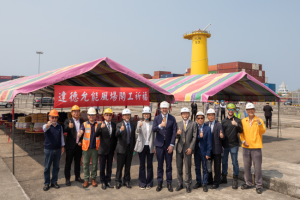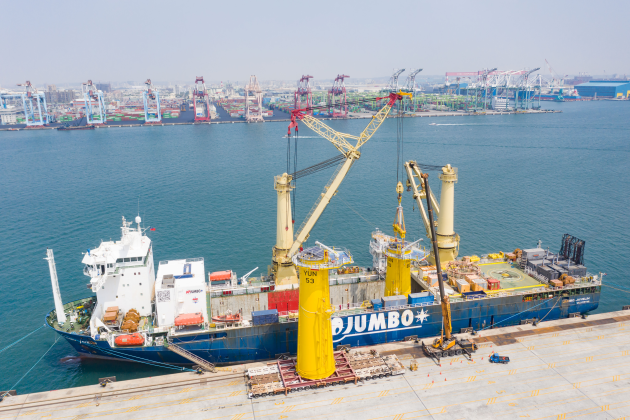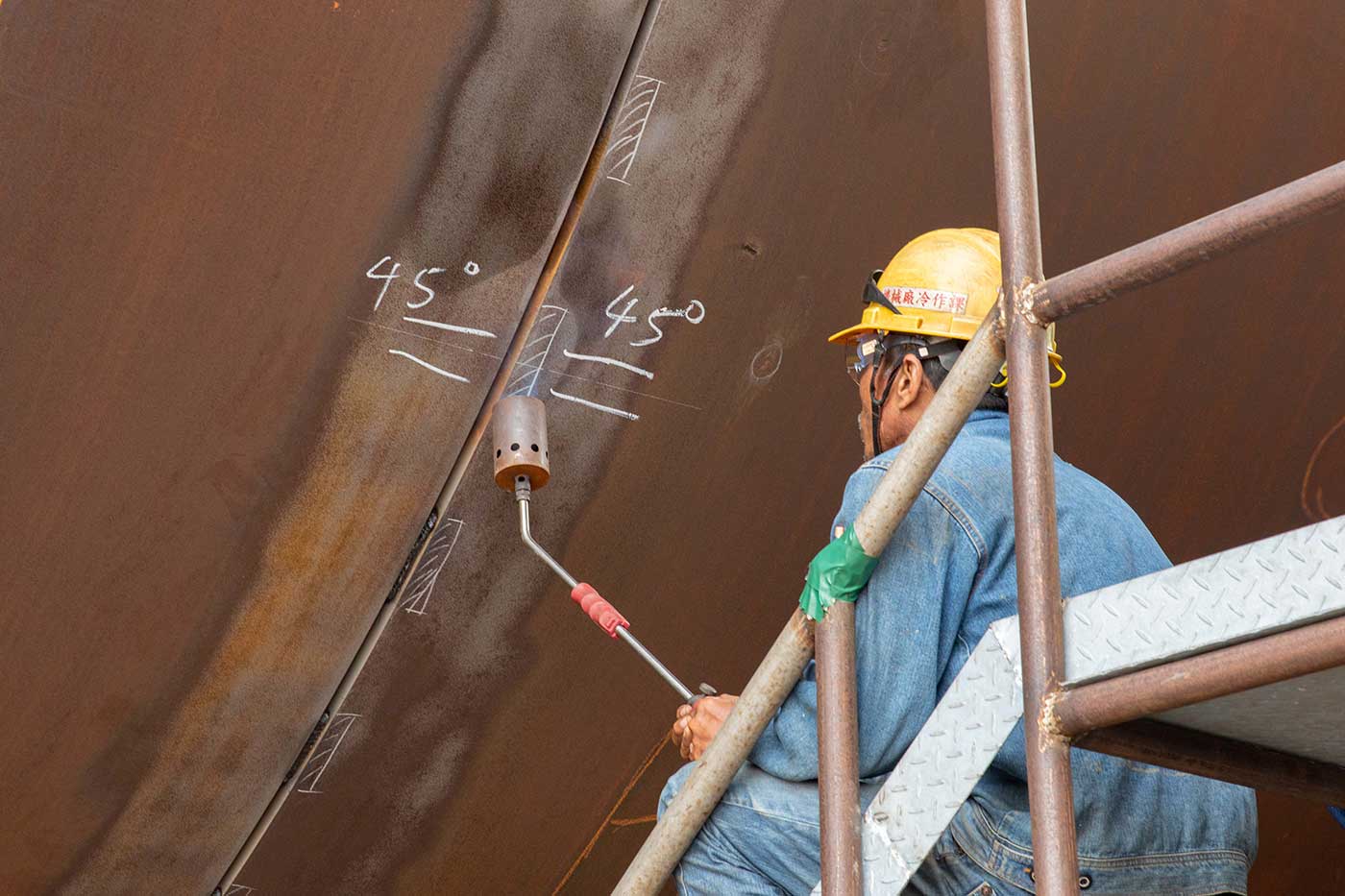On March 15, the first batch of transition pieces (TP) from OWF Yunlin developed by WPD left the port, ready for hoisting operations. A blessing ceremony was held at the Kaoming Container Terminal(KMCT). It had great significance because it was the first batch of domestically produced TPs.

According to WPD Group COO Achim Berge Olsen, the first batch of TPs will be hoisted this week and three jacket foundation piling works at the OWF Yunlin have already been completed. This batch of TPs was produced by the local manufacturer CTCI Machinery Corporation, which has made a significant contribution to the localization of Taiwan’s offshore wind power industry. WPD is very pleased with this cooperation and has high hopes for the localization of wind energy in the future.
The CTCI team is grateful for the opportunity to share knowledge with CTCI, according to Chairman Tan Yun-Peng of CTCI Machinery Corporation. He also sensually compared watching the TPs leave the port as being similar to seeing one’s long-adopted daughter get married. CTCI is pleased to have contributed to the nation’s power supply and to have provided the first batch of TPs made in Taiwan.
Harbor master Su Chien-Rung of Port of Kaohsiung Taiwan International Ports Corporation, Ltd., formerly serving as the harbor master of Taichung Taiwan International Ports Corporation, Ltd. and who has accumulated extensive experience in offshore wind power undertakings, attended the ceremony. He said that Taiwan’s energy transformation is not only limited to the provision of diversified power, but it also represents the local energy industry gradually taking shape. The hoisting of the TPs also represents each offshore wind turbine emerging from the water. He hopes for good weather this year and for the wind farm to be “powered up” as soon as possible.
General Manager Hsu Kun-Chi of Kaoming Container Terminal (KMCT) who has just taken office is greatly impressed by the project team’s degree of detailed handling of transportation operations within the port area. He said that due to the increasing importance of offshore wind power undertakings, he expected round-the-clock services to be provided based on the three principles of: ship safety, personnel safety, and cargo safety.


